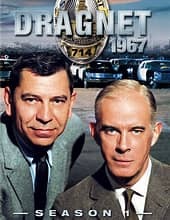Text
What you don’t know about ISBN numbers that could hurt you if you’re going to self-publish.
Before you self-publish, check out this Reedsy blog/commentary on the meaning and purpose of ISBN numbers and why you likely need them if you’re going to self-publish. Otherwise, your marketing plans and sales will be compromised BIG TIME. https://blog.reedsy.com/guide/isbn-number/?utm_source=mailparrot_newsletter&utm_campaign=marketplace_blog_isbns&utm_medium=email

1 note
·
View note
Text
Orwell’s 4 ‘Great’ Motives for Writing. Do You Agree?

Sheer egoism. Desire to seem clever, to be talked about, to be remembered after death, to get your own back on the grown-ups who snubbed you in childhood, etc.
Aesthetic enthusiasm. Pleasure in the impact of one sound on another, in the firmness of good prose or the rhythm of a good story. Desire to share an experience which one feels is valuable and ought not to be missed.
Historical impulse. Desire to see things as they are, to find out true facts and store them up for the use of posterity.
Political purpose (Using the word ‘political’ in the widest possible sense). Desire to push the world in a certain direction, to alter other peoples’ idea of the kind of society that they should strive after.”
This text appears in Orwell’s “Why I Write,” free to read, along with most of his writing, courtesy of the Orwell Foundation.
https://www.orwellfoundation.com/the-orwell-foundation/orwell/essays-and-other-works/
1 note
·
View note
Text
The Value of Writing Briefly and Incisively Is a Joke
“The secret of a good sermon is to have a good beginning and a good ending, and to have the two as close together as possible.”
-- Comedian George Burns
1 note
·
View note
Link
0 notes
Photo


Me and bust of Lenin at the KGB Spy Museum on West 14th Street in NYC. Could I be his doppelganger?
0 notes
Text
New Writing Game & Exercise: Literate Alliteration, Precocious Punning
Have furious fun and develop a voracious vocabulary via artful alliteration and perky punning.

Take a word or short phrase that pops into your head and turn it into an alliterative gem.
You can do it alone or at a party, over dinner, while hanging in the local coffee shop or pool hall, wherever and whenever you’re so inclined.
Ask those you’re with, especially if they’re writers or wannabes, to add to the word or phrase with the goal of making it a full-fledged statement, realistic or fantastic.
The purpose is to goof a little but, more important, to expand your writing vocabulary, whether for poetry, fiction, ad copy, an email, or blog.
BACKGROUND/EXAMPLE:
I got an email talking about the seminal TV series, Dragnet, and responded punningly as I often do these days:
“Dragnet was a droll drama with dreary dryopithecines, dropouts, and drifters drawn from drowsy places like Draper UT and Drexel Heights AZ, but driven by drugs and drink to do dreadful things and get dragged before draconian courts, then sentenced to dreamless lives of prison drudgery.”
A person on the other end of my reply returned the following lyric from W.S. Gilbert of Gilbert and Sullivan fame. It’s from their musical romp, The Mikado:
“To sit in solemn silence on a dull, dark dock
in a pestilential prison with a life-long lock
awaiting the sensation of a short, sharp shock
from a cheap and chippy chopper on a big, black block.”
Enjoy as in boy, coy, goy, joy, poi, soy, toy.
#dragnet #joefriday #punning #alliteration #wordgames
4 notes
·
View notes
Text
Misplaced modifiers are media malady.
HEADLINE EXAMPLE:
“Turkey formally quits treaty to prevent violence against women”
WHY INCORRECT:
No, Turkey did not quit treaty to do what headline says. Headline should read: “Turkey quits treaty that prevents violence against women.”
1 note
·
View note
Text
Speaking of Out-of-Space Words
Computer imaging of moon shows insects. They’ve been named Lunatics.
@moon, @synonyms, @jokes, @Moonresearch
4 notes
·
View notes
Text
WHAT’S ANOTHER WORD FOR THESAURUS*
A truck loaded with thousands of copies of Roget's Thesaurus crashed as it left the New York publishing house. Witnesses were surprised, stunned, startled, shocked, amazed, aghast, taken aback, stupefied....
*Steve Wright
0 notes
Text
Rule of Three for Writing Better, Guaranteed
Copyright Don Bates, 2021
The more you write, the better you get.
The more you edit, the better you get.
The more you publish, the better you get.
So, write, edit, publish. What more is there to say?
3 notes
·
View notes
Text
Writing Rules Are Made to Be Broken

Copyright by Don Bates, 2021
If I had to address every rule of writing, I would never get anything done or published. Rules are great – they guide us – but they can get in the way of creative expression and fulfillment.
Writing “to the rules” can help you refine what you’re trying to say, but if you spend too much time worrying about them, you can squelch your inspiration. Worse, your desire to write.
Never let that happen unless you discover writing isn’t for you. That it’s too hard, too time consuming, too detached from other things you love, whatever the reason. Where’s the shame in walking away? No one’s really watching. There may be someone close who’s hopeful you’ll write something significant, but they’re not you.
In the end, there’s no perfect writing. No perfect book, play, poem, essay, editorial, and on and on. There are only degrees of perfection and those result from the writer’s thinking, feeling, and imagination, not from rules, but from doing the work as best they can in their own way, in their own voice.
Salvador Dali said, “Have no fear of perfection, you'll never reach it.”
Margaret Atwood agreed: “If I waited for perfection, I would never write a word.” Leo Tolstoy: "If you look for perfection, you'll never be content."
So, next time you start brooding over rules, remind yourself they are a tool to help you write better, not the prescription for getting your writing done and published, which is every writer’s greater goal no matter how some may demure.
Remind yourself, as well, that content is what's critical. That’s what counts the most to readers. I've learned amazing things from poorly, even horribly, written publications of every kind, even though I prefer syntactical elegance. Why? Because their content was informative, insightful, useful, helpful, or all of the above. It wasn’t their words per se; it was what they said with words. By their intent, not their adherence to rules they obviously didn’t know.
Bottom line, write as well as you can but don’t spend so much time getting your language perfect. More productively, get the words out. Then, after a day or two, edit them in the calm, clear light of objectivity. Like locks, rules were made to be broken. Unlock your feelings and knowledge, so you can express your wit, wisdom, or whatever you want your writing to accomplish.
My rule of three for all writers:
The more you write, the better you’ll get.
The more you edit, the better you’ll get.
The more you publish, the better you’ll get.
So, apply rules judiciously for what they are – a helpmate – and put perfection aside. Write, edit, publish. That’s the bigger deal.
0 notes
Text
10 notes
·
View notes
Text
How I learned to ask questions when writing for others, after I didn’t with my ass on the line.

Before you write anything for new clients, ask them what kind of writing they like or want. E.g., direct, provocative, colorful, spare. Look at things that were written for them by others or that their office or company had published. Get a bead on their preferences, so you won’t stumble by writing something alien to their tastes or needs.
Also, if they request a certain kind of document, say a brochure, and you don’t have agreed-upon specifics, ask them the purpose and for whom it’s intended, and the size, maybe bring a sample or two to help them focus.
When I was young and starting out as a freelancer, a serendipitous client -- referred by a guy I met in a bar the night before -- asked me to write a brochure over a weekend for a lot of money. It was intended as a picture of the company’s history, growth, products, success. He needed it Monday at noon. Lamely, I didn’t ask any of these questions, but assumed what was warranted, read the background he had messengered to me, and wrote away. The guy loved what I showed him on Monday mid-morning but said the concept was not only wrong; it was dead wrong!
Obviously, he was peeved. I was red-faced and felt dumber than a nude teenager hiding behind a bush after his friends had run off with his bathing suit and pants just as he was going to get dressed at the local swimming hole and some girls from school would be walking past in seconds.
I had written text for a lovely six-page glossy folder along with ideas for bleed photos and abstract background graphics. It was a gem of its kind.
What did he want? A three-panel Slim-Jim folder with mostly bulleted entries that he could edit and have retyped in his office that day, then photocopied on 8.5x11 heavy paper, no pix, just type with headlines and sub-heads as visual breaks. Something he could slip into his vest pocket and hand to people at a conference he was going to the very next day!
Fortunately, he allowed me to rework the text in his office to give him what he required and post-haste. The end result was what I could have written in a few hours had I asked a few basic questions instead of assuming what was needed. Yes, we worked it out in the end, but not without upsetting his day and mine. Not a good way to do business. I’ve never made that mistake again and my writing and freelance relationships improved accordingly and resulted in more satisfied clients and more assignments.
Takeaway: If the other person doesn’t tell you and you don’t ask, guess whose ass is on the line?
6 notes
·
View notes
Text
How long should public relations paragraphs be?
25 words is advised a lot, but that’s an arbitrary average based on newspaper layout tradition. The intent in this case is to "air out” dense text so it’s more visually appealing and easier to read in small chucks. Imagine newspapers with unrelieved 100-word paragraphs? Certainly, we should aim for fewer than 50 words in P.R. writing, preferably 30-35, especially on the Internet and in emails.
0 notes
Quote
The whole point of constantly undermining the truth is to get you to believe nothing.
Frank La Posta Visco, 2020
2 notes
·
View notes
Text
Truly great quote about the intent of lying and deceiving

“The whole point of constantly undermining the truth is to get you to believe nothing.” – Frank La Posta Visco, 2020
I hate most advisory quotes because they’re usually sappy and/or illogical. But I love this one because it’s dead-eye accurate when you weigh the meaning of words used by dictators, racists, jingoists, sociopaths, and other liars of every stripe. Think Hitler, Stalin, Franco, Castro, Amin, Mao, Morsi, Khamenei, Trump.
Author Frank, my funny friend, retired copywriter, voice-over pro, and now actor wrote this the other day. He is also famous for his tongue-in-cheek writing advice, which appeared in Writer’s Digest and other magazines long ago under the title, “How to Write Good,” followed in recent years by “How to Write Even Gooder” and “How to Write Most Goodest.”
To read and download these incisive pieces, visit his website, cafepress.com and maybe buy a mousepad, coffee cup or other gift for staff, or friends. I just bought a mousepad.
That’s Frank on the right. I’m in disguise so I can try to get in free as a moron he met on the street and wants to help. The theater took one look and let me in.
0 notes
